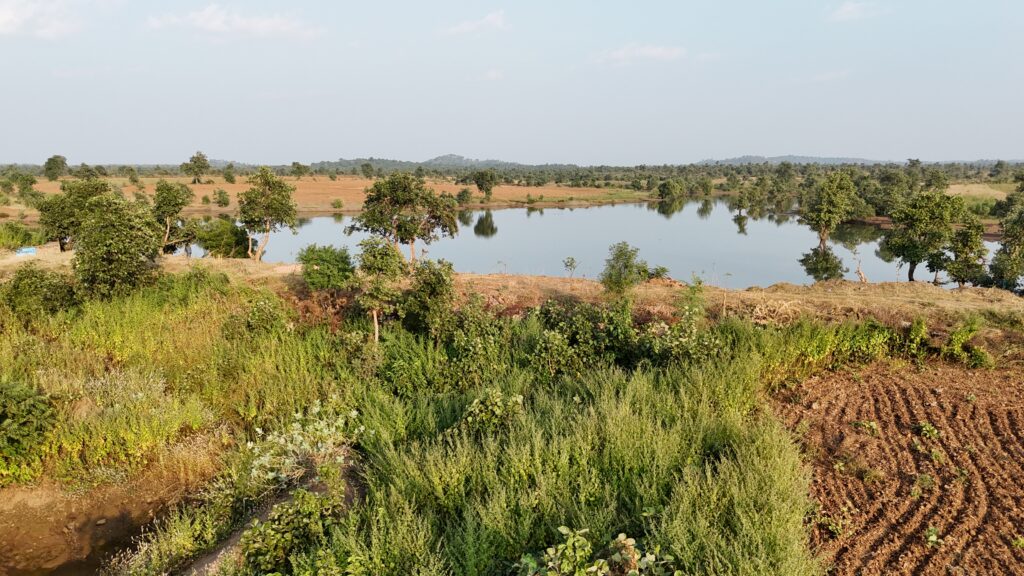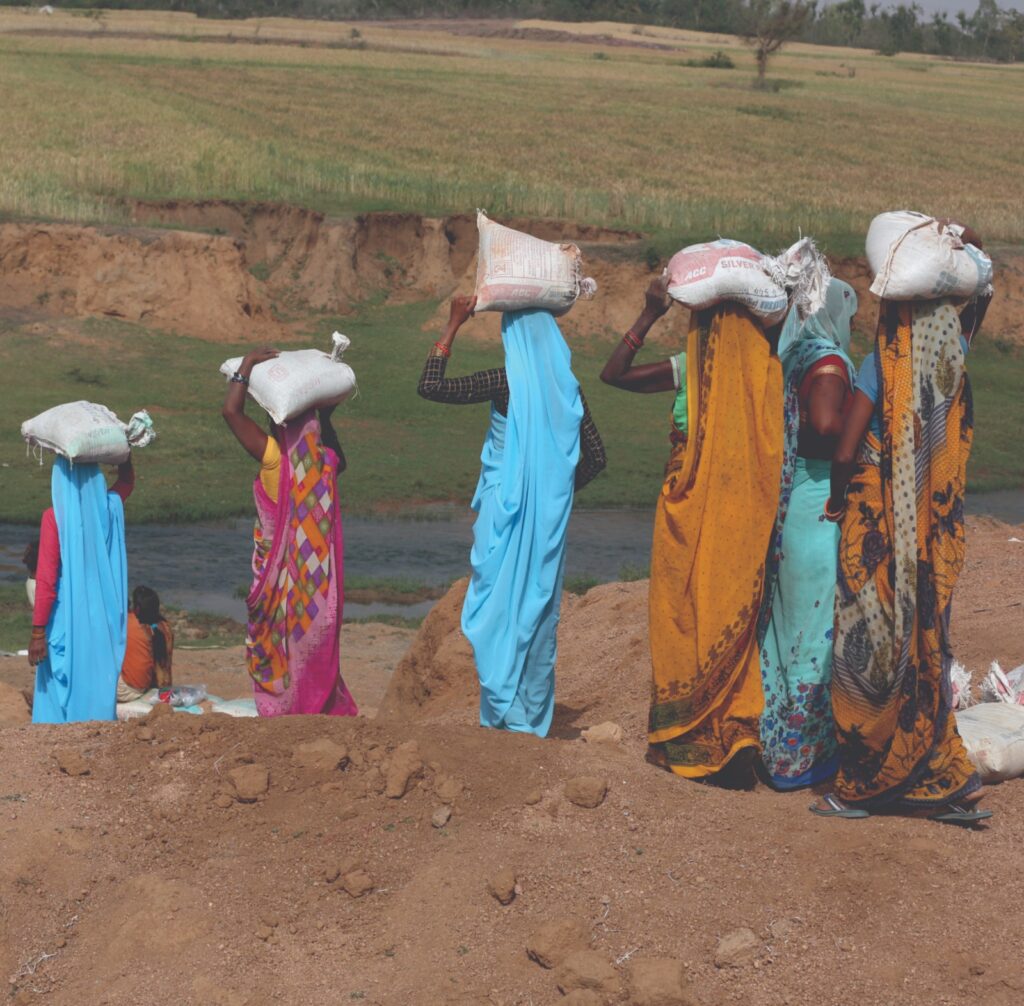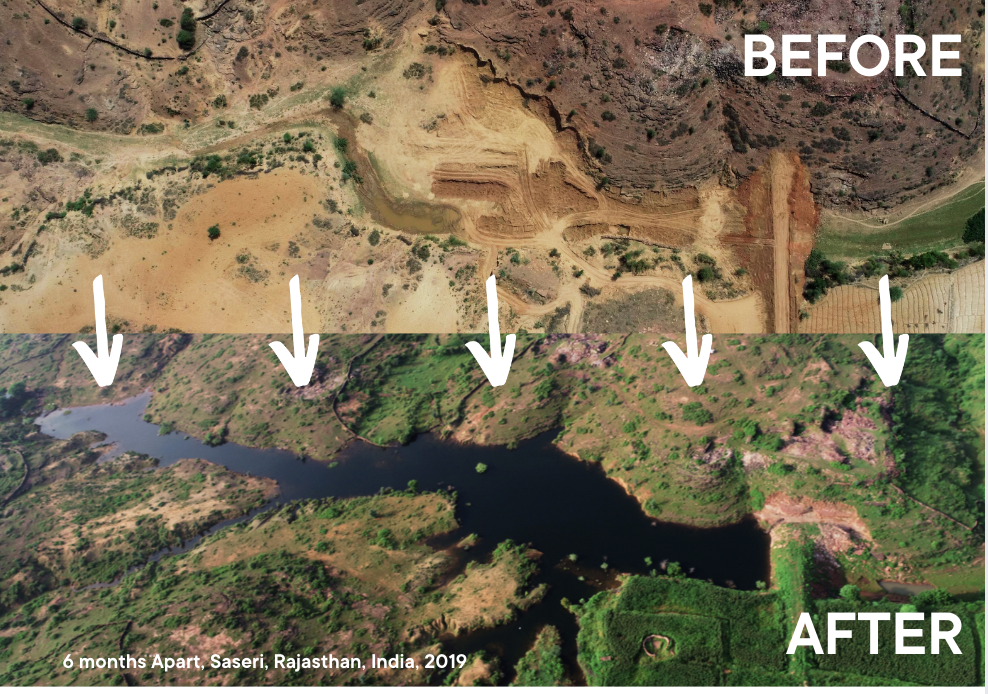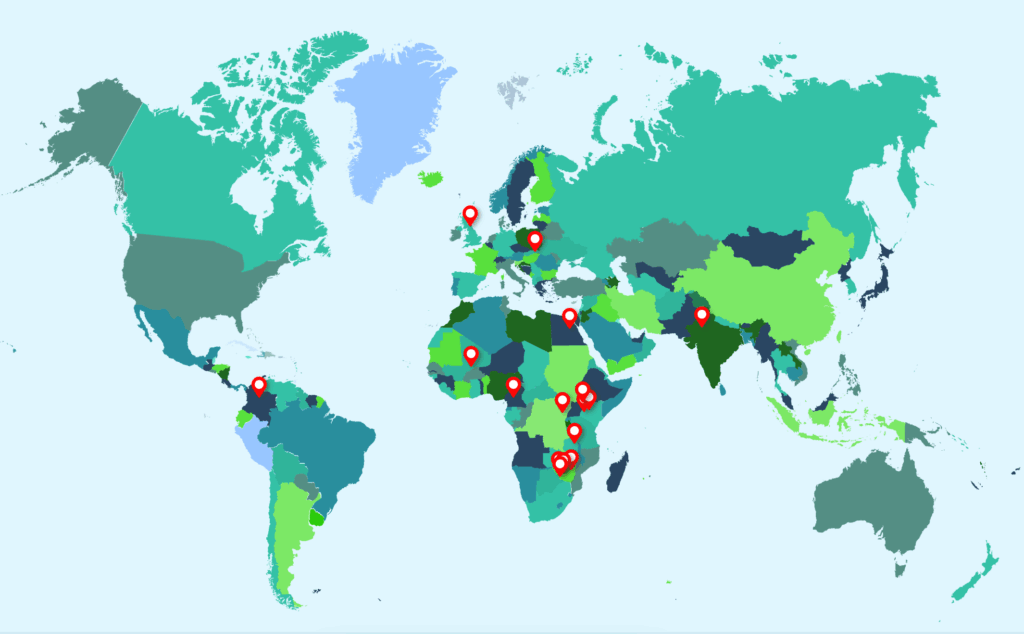Our Projects
The Landscape Water Carbon Trust works with projects and partners across the globe,
focused on landscape level restoration that provides food security and self reliance.

Reforesting Baran
Reforesting Baran is an ambitious project to rejuvenate and reforest over 500 sq km of degraded land in Rajasthan, India. Land which was once dense forest, but due to lack of water, soil erosion and famine it has crossed a tipping point of ecological degradation – no water, no trees and severe soil degradation. The villagers who inhabit the area have lost their source of livelihood.
This is a transformative journey, working with the communities across the region. Returning water, restoring soil, reforesting degraded land and establishing diversified livelihoods. to bring back a basic healthy life for the tribes and communities across the region.

Jal Sahelis
Sri Kunwar was married at just 7 years old. For years, a large part of her day was spent walking to collect water. But she had a fierce determination to change things.
By building small dams and kitchen gardens, she transformed her village into a place of abundance — food, milk, and education for her children. The Jal Saheli’s movement is a story of determination and empowerment.

Saseri
Between 2018 and 2020, 300 traditional rainwater-harvesting structures were implemented across the Sarsa catchment. These features effectively captured monsoon rainfall, recharging groundwater aquifers and increasing the availability of clean water in wells. Even during droughts, residents could access water.

Water Schools
Water Schools is a shared platform created by The Flow Partnership to hold, exchange and implement a community-led water-retention movement across the planet.
Local communities come together and share their water wisdom, learn practical, successful methods of holding water in their landscapes from each other and actually hold rainwater in ever increasing quantities to rehydrate the planet at a micro level.
This two pronged strategy (of literacy and action) enables local communities to remain independent, responsible and in charge of their actions to become water secure and self-reliant.
